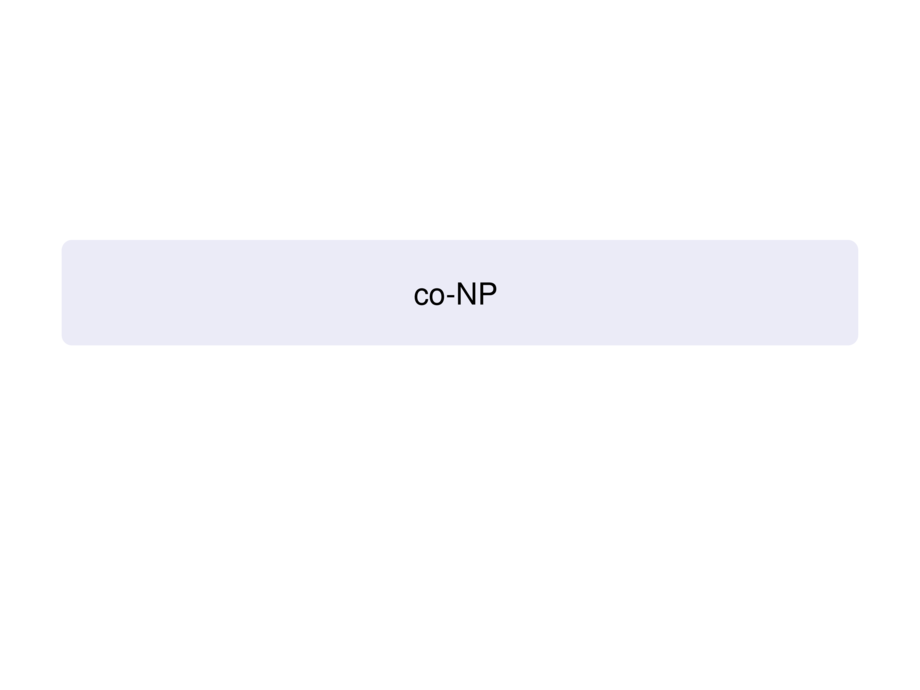



































































































101/122
\begin{frame}{NP-completeness and P = NP?}
\begin{block}{Theorem}
If an NP-complete language $L$ is also in $P$, then $\text{P} = \text{NP}$.
\end{block}
\pause
\begin{proof}
Assume that $L$ is NP-complete and in P.
\pause\medskip
Let $L' \in \text{NP}$.
\pause\medskip
As $L$ is NP-complete, there is a polynomial-time reduction $f$ with
\begin{talign}
x \in L' \iff f(x)\in L
\end{talign}
\pause
Since $L \in \text{P}$, we can compute $f(x) \in L$ in polynomial time.
\pause\medskip
Thus $x \in L'$ can be decided in polynomial time.
\medskip
Hence $L' \in \text{P}$.
\end{proof}
\pause
\begin{goal}{}
For proving $\text{P} = \text{NP}$ it suffices to show that
one NP-complete problem can be solved in deterministic polynomial time.
\end{goal}
\end{frame}
\subsection{The Class co-NP}
\themex{co-NP}

